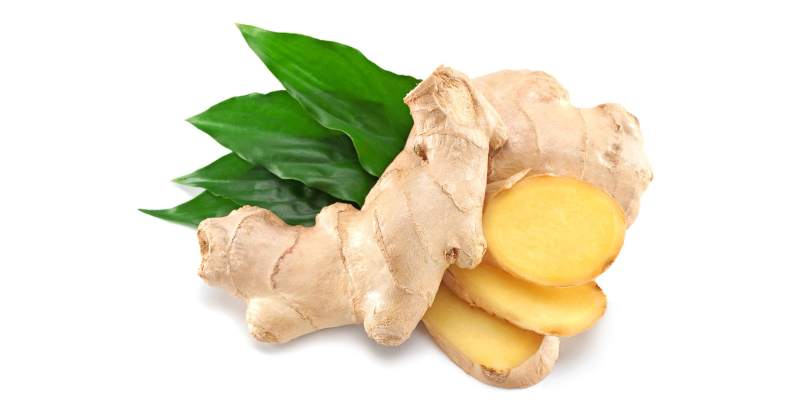Ginger leaves are tropical plants that often grow in warm, humid climates. These green, glossy leaves have been used for centuries to make medicinal teas, steeped in hot water, and consumed as herbal remedies. The healing properties of ginger tea can help reduce inflammation, treat respiratory tract infections, and boost energy when needed. Here is everything wanted to know about Ginger leaves :
Description / Taste :
Ginger leaves are glossy, bright green, and have a pungent aroma. They have a slightly spicy flavor similar to ginger root’s edible part. There is also a hint of sweetness.
Seasons / Availability :
Ginger leaves are mainly available in tropical climates throughout the year.
Geography / History :
Ginger is believed to have originated in Southeast Asia, but it is now cultivated in many parts of the world. It has been used medically and as a spice for centuries. Ginger tea made from ginger leaves has been consumed since ancient times and may be one of the oldest medicinal teas known.
Applications :
Ginger leaves can be used fresh or dried in various dishes and recipes. Fresh ginger leaves can be chopped, added to salads, or made into pesto sauces. They can also be steeped in hot water for medicinal tea or blended with other herbs, such as turmeric, for a healing tonic. Dried ginger leaves can also be used as a seasoning in curries or other dishes.
Storage :
Fresh ginger leaves should be stored in an airtight container in the refrigerator, where they will keep for up to one week. Dried ginger leaves can be kept in an airtight container at room temperature for up to three months.
Nutritional Value :
Ginger leaves contain several nutrients that are beneficial for human health. They are rich in vitamins A and C, potassium, calcium, magnesium, zinc, and manganese. In addition, they contain flavonoids which act as antioxidants helping to protect cells from free radical damage caused by environmental stressors such as pollution and ultraviolet radiation.
Health Benefits :
Ginger leaves have been used in traditional medicine to treat conditions such as colds, flu, indigestion, and nausea. They are believed to reduce inflammation and help respiratory tract infections by soothing the throat and relieving coughing. Ginger tea is also known to boost energy levels, improve digestion and relieve stress.
How to Use Ginger Leaves :
Ginger leaves can be used fresh or dried for teas and other culinary purposes. To make ginger tea, steep a few pieces of fresh ginger leaf in hot water for several minutes before drinking. This tea can be enjoyed greatly daily for optimal health benefits. Dried ginger leaves can also be added to dishes such as soups or salads for an interesting flavor.

Conclusion :
Ginger leaves are a versatile and healthful addition to any diet. They offer a range of medicinal benefits, including anti-inflammatory effects, respiratory support, and energy-boosting effects. Ginger leaves can be used fresh or dried in teas and other dishes for an interesting flavor and added nutritional value.
- Everything You Wanted to Know About Red Tamarillos - June 2, 2025
- A Guide to Tulips: Everything You Need to Know & More… - June 2, 2025
- Guanabana: Description, Flavor, Benefits, And Uses - May 27, 2025
